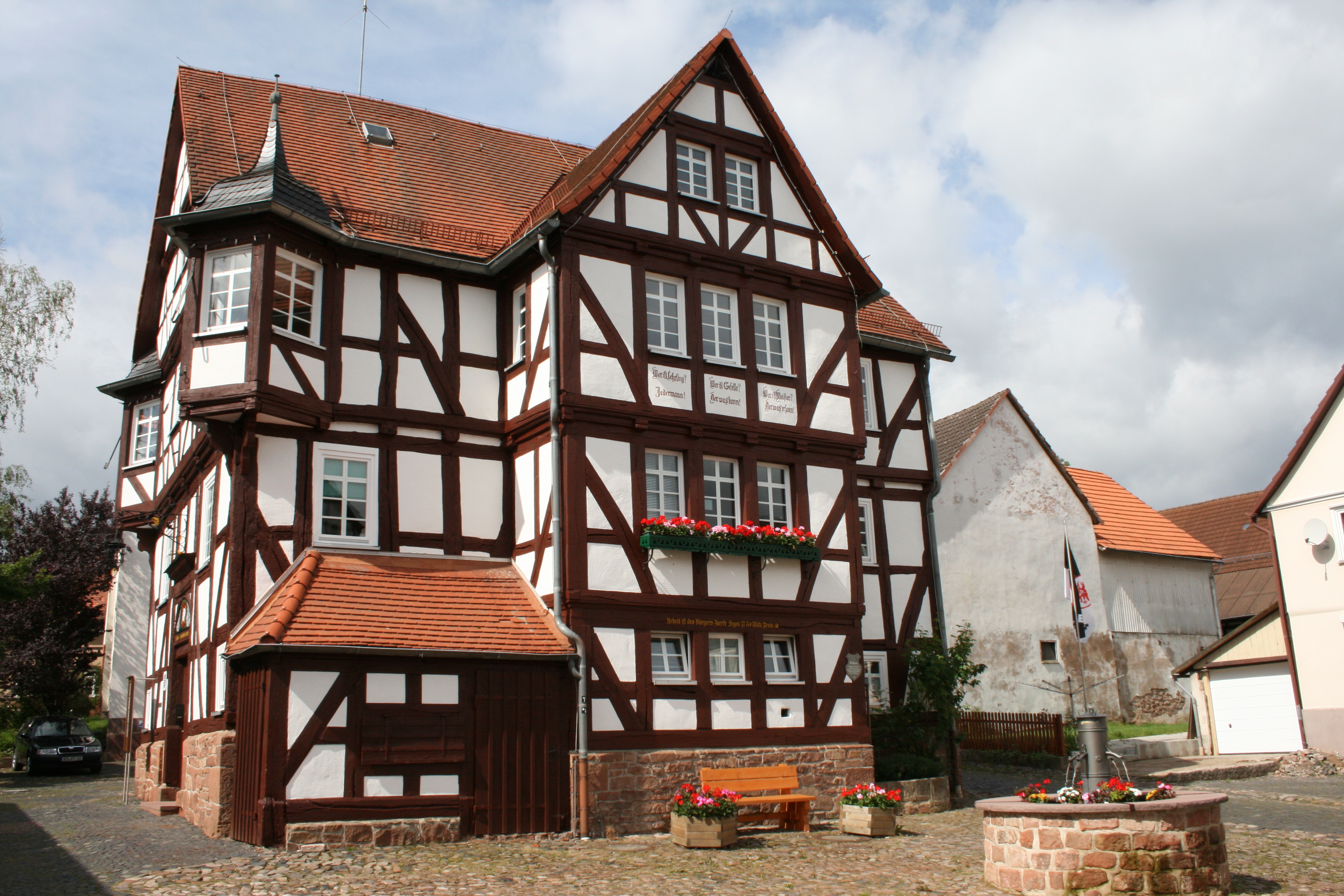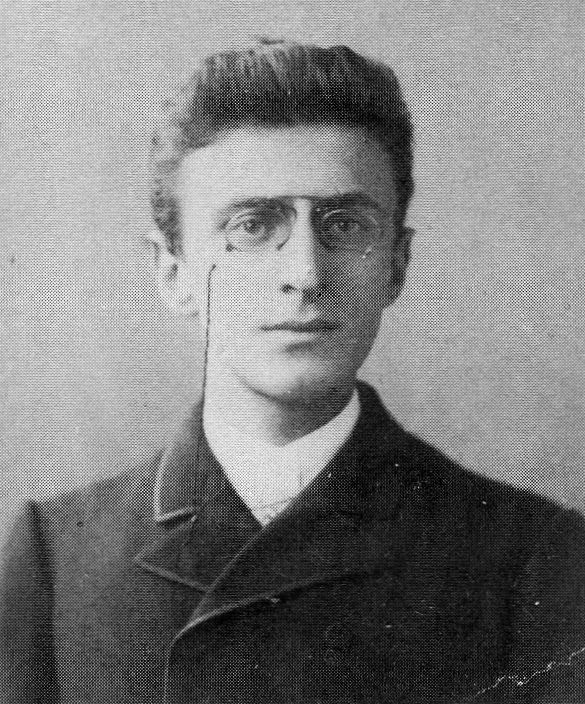|
Ernst Kornemann
Ernst Kornemann (11 October 1868, Rosenthal near Kassel – 4 December 1946, Munich) was a German classical historian. Biography He studied at Giessen (1878–89) and Berlin (1889–92), and took the degree of doctor of philosophy (1891); he was appointed assistant professor teaching under the faculty (1892). He became privatdocent of ancient history at Giessen (1892) and then professor at Tübingen (1902). With Dr. Lehmann-Haupt, of Liverpool, he established the periodical '' Klio'', dedicated to ancient history. Literary works His publications include: *1891 ''De civibus Romanis in provinciis imperii consistentibus''. *1896 ''Die historische Schriftstellerei des Consuls Asinius Pollio''. *1903 ''Zur Geschichte der Graechenzeit''. *1904 ''Die neue Livius-Epitome aus Oxyrhynchus''. *1905 ''Kaiser Hadrian und der letzte grosse Historiker von Rom''. *1912 ''Priesterkodex in der Regia und die Entstehung der altrömische Pseudogeschichte''. *1921 ''Mausoleum und Tatenbericht ... [...More Info...] [...Related Items...] OR: [Wikipedia] [Google] [Baidu] |
Rosenthal (Hesse)
Rosenthal is a small town in southeast Waldeck-Frankenberg district in Hesse, Germany. Geography Location Rosenthal lies in the Burgwald range 11 km southeast of Frankenberg and 18 km northeast of Marburg. Neighbouring communities Rosenthal borders in the north on the community of Burgwald, in the east on the town of Gemünden (both in Waldeck-Frankenberg), in the southeast on the community of Wohratal, in the south on the towns of Rauschenberg and Wetter, and in the west on the community of Münchhausen (all in Marburg-Biedenkopf). Constituent communities Besides the main town, which bears the same name as the whole, the town of Rosenthal consists of the centres of Roda and Willershausen. History Rosenthal was founded in 1327 as a Mainz town and outpost in the dispute over the Hessian fief, but nevertheless passed to the Landgraviate of Hesse in 1464. In 1688, the town achieved dubious fame by being the scene of Hesse's last witch burnings. In 1866, Rosenth ... [...More Info...] [...Related Items...] OR: [Wikipedia] [Google] [Baidu] |
Alfred Gercke
Karl Friedrich August Alfred Gercke (20 March 1860, Hannover – 26 January 1922, Breslau) was a German classical philologist. He is known for his research pertaining to the history of Greek philosophy, in particular, Hellenistic philosophy, and for his studies involving Seneca the Younger.Baader, Gerhard, "Gercke, Karl Friedrich August Alfred" in: New German Biography 6 (1964), p 258. Academic career He studied under , Franz Bücheler and |
Humboldt University Of Berlin Alumni
Humboldt may refer to: People * Alexander von Humboldt, German natural scientist, brother of Wilhelm von Humboldt * Wilhelm von Humboldt, German linguist, philosopher, and diplomat, brother of Alexander von Humboldt Fictional characters * Humboldt Fleisher, character in novel ''Humboldt's Gift'' * Wes Humboldt, character played by Mike O'Brien on ''Corner Gas'' Places Argentina * Humboldt, Argentina, a town in Santa Fe Province, Argentina Australia * Humboldt, Queensland, a locality in the Central Highlands Region Canada * Humboldt, Saskatchewan * Rural Municipality of Humboldt No. 370, Saskatchewan * Humboldt (federal electoral district), a former federal electoral district * Humboldt (provincial electoral district), a former Saskatchewan provincial electoral district United States * Settled places: ** Dewey-Humboldt, Arizona ** Humboldt, Illinois ** Humboldt, Iowa ** Humboldt, Kansas ** Humboldt, Minnesota ** Humboldt, Nebraska ** Humboldt, Ohio ** Humb ... [...More Info...] [...Related Items...] OR: [Wikipedia] [Google] [Baidu] |
University Of Giessen Alumni
A university () is an institution of tertiary education and research which awards academic degrees in several academic disciplines. ''University'' is derived from the Latin phrase , which roughly means "community of teachers and scholars". Universities typically offer both undergraduate and postgraduate programs. The first universities in Europe were established by Catholic monks. The University of Bologna (), Italy, which was founded in 1088, is the first university in the sense of: *being a high degree-awarding institute. *using the word (which was coined at its foundation). *having independence from the ecclesiastic schools and issuing secular as well as non-secular degrees (with teaching conducted by both clergy and non-clergy): grammar, rhetoric, logic, theology, canon law and notarial law.Hunt Janin: "The university in medieval life, 1179–1499", McFarland, 2008, , p. 55f.de Ridder-Symoens, Hilde''A History of the University in Europe: Volume 1, Universities in ... [...More Info...] [...Related Items...] OR: [Wikipedia] [Google] [Baidu] |
1946 Deaths
1946 (Roman numerals, MCMXLVI) was a common year starting on Tuesday of the Gregorian calendar, the 1946th year of the Common Era (CE) and ''Anno Domini'' (AD) designations, the 946th year of the 2nd millennium, the 46th year of the 20th century, and the 7th year of the 1940s decade. Events January * January 6 – The 1946 North Vietnamese parliamentary election, first general election ever in Vietnam is held. * January 7 – The Allies of World War II recognize the Austrian republic with its 1937 borders, and divide the country into four Allied-occupied Austria, occupation zones. * January 10 ** The first meeting of the United Nations is held, at Methodist Central Hall Westminster in London. ** ''Project Diana'' bounces radar waves off the Moon, measuring the exact distance between the Earth and the Moon, and proves that communication is possible between Earth and outer space, effectively opening the Space Age. * January 11 – Enver Hoxha declares the People's Republic ... [...More Info...] [...Related Items...] OR: [Wikipedia] [Google] [Baidu] |
1868 Births
Events January * January 2 – British Expedition to Abyssinia: Robert Napier leads an expedition to free captive British officials and missionaries. * January 3 – The 15-year-old Mutsuhito, Emperor Meiji of Japan, declares the ''Meiji Restoration'', his own restoration to full power, under the influence of supporters from the Chōshū and Satsuma Domains, and against the supporters of the Tokugawa shogunate, triggering the Boshin War. * January 5 – Paraguayan War: Brazilian Army commander Luís Alves de Lima e Silva, Duke of Caxias, enters Asunción, Paraguay's capital. Some days later he declares the war is over. Nevertheless, Francisco Solano López, Paraguay's president, prepares guerrillas to fight in the countryside. * January 7 – The Arkansas constitutional convention meets in Little Rock. * January 9 – Penal transportation from Britain to Australia ends, with arrival of the convict ship '' Hougoumont'' in Western Australia, afte ... [...More Info...] [...Related Items...] OR: [Wikipedia] [Google] [Baidu] |
People From Waldeck-Frankenberg
The term "the people" refers to the public or common mass of people of a polity. As such it is a concept of human rights law, international law as well as constitutional law, particularly used for claims of popular sovereignty. In contrast, a people is any plurality of persons considered as a whole. Used in politics and law, the term "a people" refers to the collective or community of an ethnic group or nation. Concepts Legal Chapter One, Article One of the Charter of the United Nations states that "peoples" have the right to self-determination. Though the mere status as peoples and the right to self-determination, as for example in the case of Indigenous peoples (''peoples'', as in all groups of indigenous people, not merely all indigenous persons as in ''indigenous people''), does not automatically provide for independent sovereignty and therefore secession. Indeed, judge Ivor Jennings identified the inherent problems in the right of "peoples" to self-determination, as i ... [...More Info...] [...Related Items...] OR: [Wikipedia] [Google] [Baidu] |
19th-century German Historians
The 19th century began on 1 January 1801 (represented by the Roman numerals MDCCCI), and ended on 31 December 1900 (MCM). It was the 9th century of the 2nd millennium. It was characterized by vast social upheaval. Slavery was Abolitionism, abolished in much of Europe and the Americas. The First Industrial Revolution, though it began in the late 18th century, expanded beyond its British homeland for the first time during the 19th century, particularly remaking the economies and societies of the Low Countries, France, the Rhineland, Northern Italy, and the Northeastern United States. A few decades later, the Second Industrial Revolution led to ever more massive urbanization and much higher levels of productivity, profit, and prosperity, a pattern that continued into the 20th century. The Catholic Church, in response to the growing influence and power of modernism, secularism and materialism, formed the First Vatican Council in the late 19th century to deal with such problems an ... [...More Info...] [...Related Items...] OR: [Wikipedia] [Google] [Baidu] |
Hermann Bengtson
Hermann or Herrmann may refer to: * Hermann (name), list of people with this name * Arminius, chieftain of the Germanic Cherusci tribe in the 1st century, known as Hermann in the German language * Éditions Hermann, French publisher * Hermann, Missouri, a town on the Missouri River in the United States ** Hermann AVA, Missouri wine region * The German SC1000 bomb of World War II was nicknamed the "Hermann" by the British, in reference to Hermann Göring * Herrmann Hall, the former Hotel Del Monte, at the Naval Postgraduate School, Monterey, California * Memorial Hermann Healthcare System, a large health system in Southeast Texas * The Herrmann Brain Dominance Instrument (HBDI), a system to measure and describe thinking preferences in people * Hermann station (other), stations of the name * Hermann (crater), a small lunar impact crater in the western Oceanus Procellarum * Hermann Huppen, a Belgian comic book artist * Hermann 19, an American sailboat design built by Ted H ... [...More Info...] [...Related Items...] OR: [Wikipedia] [Google] [Baidu] |
Eduard Norden
Eduard Norden (21 September 1868 – 13 July 1941) was a German classicist, classical philologist and historian of religion. When Norden received an honorary doctorate from Harvard University, Harvard, James Bryant Conant referred to him as "the most famous Latinist in the world".Andrew R. Dyckreviewof Wilt Aden Schröder, ''Der Altertumswissenschaftler Eduard Norden (1868-1941)''. ''Bryn Mawr Classical Review'' 2000.01.03. Life Eduard Norden was born in Emden in East Frisia, the son of a Jewish physician. Baptized in the Evangelical Church in Germany, Evangelical Church aged 17, he studied classics at University of Bonn, Bonn and University of Berlin, Berlin. After serving as assistant at University of Strasbourg, Strassburg, in 1893 he became professor at University of Greifswald, Greifswald. In Greiswald he married Marie Schultze, the daughter of the city's mayor. After having published ''Die Antike Kunstprosa'' in 1899 he was appointed to the University of Breslau. The book o ... [...More Info...] [...Related Items...] OR: [Wikipedia] [Google] [Baidu] |
Klio (journal)
''Klio: Beiträge zur alten Geschichte'' is a biannual peer-reviewed academic journal covering ancient history, focussing on the history of Ancient Greece and Rome from the archaic period to Late Antiquity, as well as relationships with the Ancient Near East. Areas covered also include epigraphy, papyrology, archaeology and numismatics. The journal is published by Walter de Gruyter and articles are in English, French, German, Italian, or Spanish. History The journal was established in 1901 as ''Beiträge zur alten Geschichte'' (English: ''Contributions to Ancient History''). Since the 6th issue, it has been named ''Klio'', after Clio, the muse of historiography. The first editor-in-chief was Carl F. Lehmann; in 1903 he was joined by Ernst Kornemann. The journal was published by Leipziger Dieterich-Verlag until 1944. After a first continuously numbered series of the journal from 1901 to 1923, a "New Series" was begun in 1925, which restarted at number one and came to an end wit ... [...More Info...] [...Related Items...] OR: [Wikipedia] [Google] [Baidu] |





